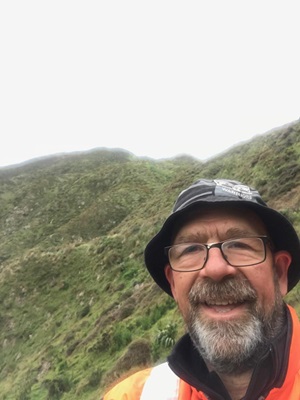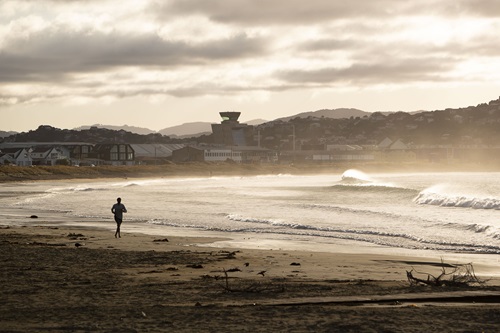Apart from a few campers in lockdown, the campsites are almost empty and it has been the locals doing the exploring.
Seeing people enjoying their own neighbourhoods has been a real positive of the Covid-19 lockdown for Wellington City Council Park Ranger Brian Thomas.
“People are connecting with their local areas and communities,” he says. “Lots of our carparks have been empty, so people weren’t driving to their favourite place or to the most popular sites.
"More people have just been walking in their own neighbourhood, possibly discovering areas that they haven’t been to before or rediscovering places they haven’t visited for a while.”

With 14 years’ experience, Brian is one of five park rangers who each have their own geographical area of Wellington to look after.
Essentially, the team is a watchdog for all public parks, open spaces, sports grounds and playgrounds. They address any hazards, and they play a big role in managing relationships with communities and stakeholders.
A large part of their role is helping community groups with pest control and environmental restoration works. Brian is responsible for Wellington’s eastern suburbs, and he says connecting with the community is his favourite part of the job.
“I feel like I am really lucky to do what I do. It brings me into contact with a lot of really cool volunteers who do what they do because they love it, and not because they are being paid to do it.”
Brian spends a lot of time facilitating and assisting with projects being carried out by a myriad of passionate volunteer community groups, the number of which he has seen increase significantly over the past decade.
“It’s a great problem to have,” he jokes, “we’ve got all these people who want to do stuff to enhance our reserves – and we are there to support them and make sure they are safe. We also work closely with schools, helping them to do environmental projects in and around their schools – that can be a really rewarding part of the role.”
During summer, Council park rangers spend a lot of time meeting with event organisers, ensuring they have plans to manage public safety and to reinstate the sites at which events are taking place. This is also when the Capital becomes a popular destination for freedom campers.

“During the peak season, we’ll normally start visiting our freedom camping sites at about 6am. While there, we’ll be recording registration numbers, checking compliance for self-containment, and checking people are parked up in the areas they are supposed to be.
“We’ll head back to the sites in the evening and we will engage with campers, give out information to tourists, and warning letters if required.”
Brian says freedom campers are only permitted to stay four nights in a calendar month at each of the designated sites. Most of the congestion in Wellington is caused by tourists wanting to remain close to the ferry terminal and the inner city.
“The challenge is getting the right information out to these people before they arrive so they are aware of other options in the Wellington region where there are some great sightseeing and recreational opportunities.”